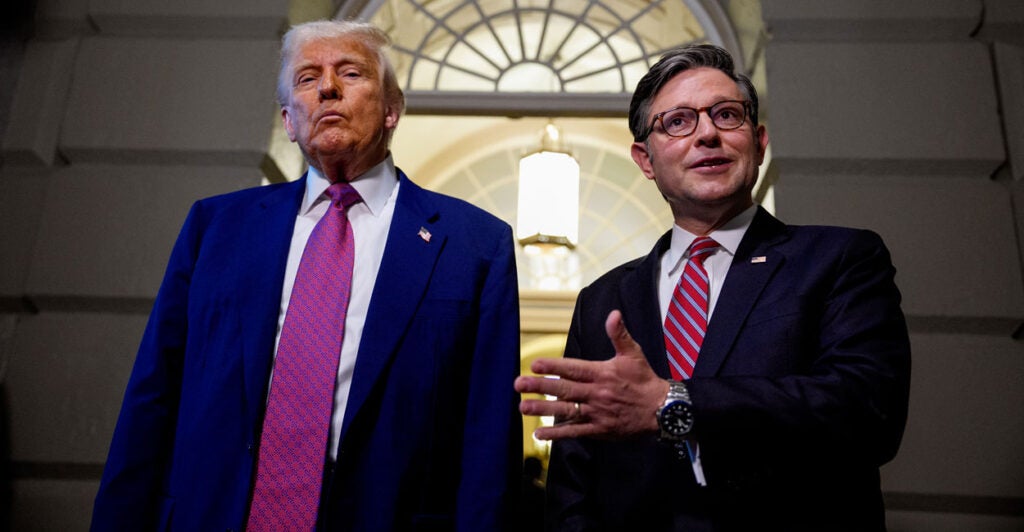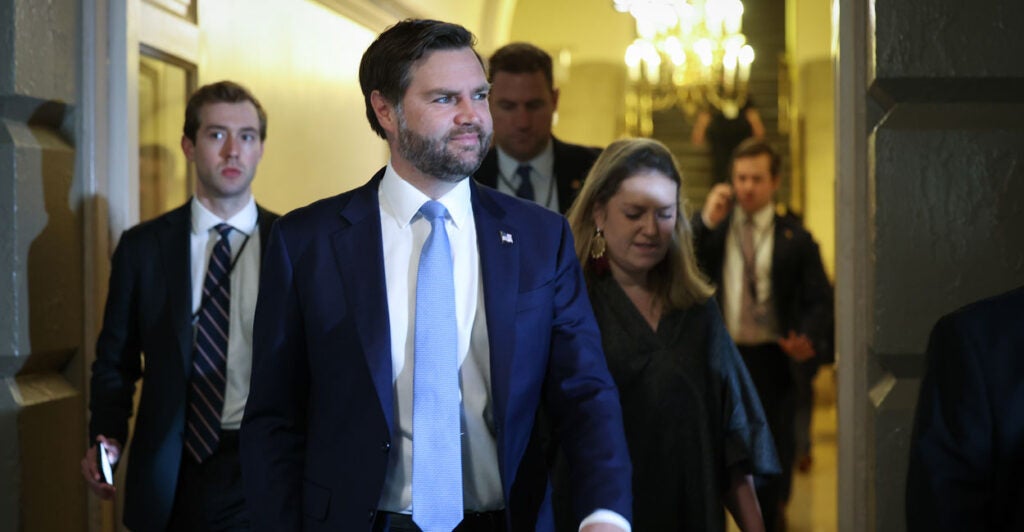President Donald Trump, though working with razor-thin majorities in the House and Senate, has won in almost every single legislative fight of the 119th Congress. But is there a risk his congressional winning streak will come to an end?
So far, Trump’s second term has been characterized by general cooperation from Republicans in Congress to advance his ambitious legislative goals.
That’s a far cry from his first term, when Republicans in the Senate helped kill his attempt at a partial repeal of the Affordable Care Act, and he was repeatedly denied funding for a border wall.
In January, Trump sealed the deal by calling Republican holdouts in the House to reelect Speaker of the House Mike Johnson, R-La. Then, he got his Cabinet confirmed, even amid grumblings from some Republicans over confirming nominees such as Health and Human Services Secretary Robert F. Kennedy Jr. and Secretary of Defense Pete Hegseth.
Later, despite internal disagreements over the “big, beautiful” budget reconciliation bill, he used both the carrot and the stick to ensure passage every single step of the way. More recently, he got Congress, which covets its control of the budgetary purse strings, to accept his request to cut funding from foreign aid and public broadcasting.

Jeffrey Epstein
With the issue of whether to compel the release of files on the now-deceased convicted sex offender Jeffrey Epstein, however, the executive branch has met a bit of legislative pushback, as Congress has taken the issue into its own hands.
Republicans and Democrats on the House Oversight Committee have subpoenaed the Department of Justice’s documents on Epstein, and one congressman is not ruling out measures against Attorney General Pam Bondi if she does not comply.
Asked whether Republicans would hold the attorney general in contempt of Congress if she did not comply with the request, Rep. Eric Burlison, R-Mo., who serves on the House Oversight Committee, replied, “We’ll have to take a look at that. That’s not something I’ve thought of, but look, if she’s going to be completely defiant, then I think we may have to call a spade a spade.”
This aggressive prodding of the administration is perhaps the first time congressional Republicans have forcefully rejected a decision from the executive branch, which has attempted to limit the information it will release.
Additionally, Reps. Thomas Massie, R-Ky., and Ro Khanna, D-Calif., will be seeking to force a vote on their bill to make the White House release information on Epstein when the House returns in September. That would be a major congressional encroachment on the executive branch’s power.
It remains unclear how the executive branch will handle the issue in Congress going forward, but it does represent one of the first instances of the legislative branch pressuring the White House, rather than the other way around.
Wrestling for Control of Purse Strings
The White House will also put its political capital to the test with upcoming rescissions packages to cut unspent federal discretionary spending. The White House is teasing more packages, and one source familiar with the matter told The Daily Signal that this could involve funding for the Department of Education.
But this will likely happen amid hesitancy from some Republicans who view this as snatching away their power of the purse.
“I do not think that should be our path,” Sen. Lisa Murkowski, R-Alaska, said in July of a rescissions package that she voted against. “It’s not legislating. It’s basically the White House saying, ‘This is what we want you to do. Take it or leave it.’”
Other Republicans similarly appear keen to return to the traditional appropriations process over more exotic measures such as rescissions.
“The appropriations process is the key way that Congress carries out this significant constitutional responsibility. We must not abdicate our constitutional responsibility for the purse,” said Sen. Susan Collins, R-Maine, in July, who also voted against a rescissions package from the White House.

Despite the White House’s significant legislative successes, it has been a year of close votes, with Vice President JD Vance having to break a tie on the “Big, Beautiful Bill,” as well as on some judicial and executive branch nominees and on procedural votes to advance the July rescissions package.
As the White House prepares more rescissions packages and more budget reconciliation votes, it may have reach into its bag of tricks to keep the ideologically diverse, slender GOP congressional majorities in line. All of these issues will return to the fore once Congress returns from recess in September.
Still, it’s probably not a good move to bet against a president who has endured federal investigations, an arrest, almost universally negative media coverage, and a pair of assassination attempts.
Trump retains all of the advantages that have compelled Republicans to follow his lead in this Congress: the momentum of a landslide presidential victory, an intensely loyal base, and the power of life and death over nearly any Republican candidate’s chances in a party primary.








